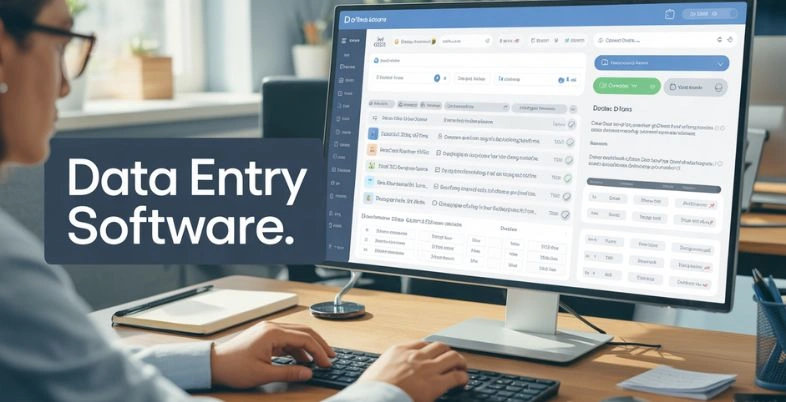In an era of 24/7 diners and comfort food, Waffle House is an American institution. With more than 1,900 units in 25 states, mostly in the South, it’s not just a breakfast joint, it’s an icon of American culture. Famous for its waffles, hashbrowns, and all-night operations, Waffle House has come to represent consistency, value, and Southern hospitality.
With its faithful fan base and consistent traffic, a lot of businesspeople have one burning question: How do I start a Waffle House franchise? The response, however, is not as easy as for other fast-food chains. When considering the Waffle House franchise cost, there are several factors that make it more complex than typical franchising models. In this article, we will dissect the cost of starting a Waffle House franchise, the requirements and challenges, and why it may or may not be a good investment for you.
Can You Franchise a Waffle House?

Let’s get the most important clarification out of the way first, Waffle House does not have traditional franchising available to the general public.
Unlike McDonald’s or Subway, Waffle House is a privately owned corporation with the majority of their locations owned and operated by the company itself. Few Waffle House restaurants are franchise-owned, and those transactions are typically the result of established internal relationships or previous partnerships with the company.
What Does That Mean for Aspiring Franchisees?
This exclusivity translates to the fact that if you don’t already belong to the Waffle House chain or have a substantial business relationship with the company previously, you cannot just apply and invest in the franchise. Waffle House is very particular and likes tight management control and standard service quality, something that is easier to ensure through corporate-owned establishments.
Estimated Waffle House Franchise Cost
Though Waffle House does not release official franchise information because it only franchises in a limited way, industry estimates and comparison data give us a rough estimate of what it would take if the brand used a standard franchise model.
Here’s a rough figure of what a theoretical Waffle House franchise might cost, based on industry norms and insider figures:
| Item | Estimated Cost |
| Franchise Fee | $200,000 – $300,000 |
| Initial Investment | $600,000 – $1.2 million |
| Real Estate/Leasehold | $250,000 – $500,000 |
| Equipment & Kitchen Setup | $200,000 – $300,000 |
| Working Capital (6 months) | $100,000 – $150,000 |
| Marketing & Signage | $25,000 – $50,000 |
| Royalty Fee | Estimated 4% – 6% of gross sales |
Please note that these numbers are unofficial and for estimation purposes only, derived from comparisons with similar diner-style franchises such as Denny’s, IHOP, and Huddle House.
Profit Potential of a Waffle House Location

In spite of entry barriers, the financial potential is obvious. Waffle House restaurants are notoriously successful, with some estimating average annual revenues between $600,000 to $1.2 million per restaurant, based on size and location.
With a net profit margin of 10% to 15% assumed, an individual busy location could feasibly bring in $60,000 to $180,000 in annual profits. Driving these margins are:
- 24-hour operations (labor cost management)
- Proximity to highways, universities, or city centers
- Ownership of properties versus leasing
- Staffing and operational efficiency
While specific numbers aren’t disclosed, Waffle House’s ongoing growth and repeat business indicate strong unit economics.
Alternative Paths: How to Get Involved with Waffle House
If traditional franchising is not feasible, how do you get aligned with the Waffle House brand?
1. Corporate Employment Paving the Way to Partnership
Waffle House typically promotes within and rewards long-term loyalty. It’s not unusual for senior staff and operators to be presented with partial ownership shares or control of company-owned units under profit-sharing arrangements.
This path may take years but offers working-level exposure, operational insight, and access to investment opportunities.
2. Real Estate Development Partnership
In some instances, prime location real estate developers can go to Waffle House to offer a build-to-suit lease. This is a real estate-based partnership, and not a franchise, where the developer develops the land/building and Waffle House leases the space for its business.
This provides indirect participation and stable rental income from a successful tenant with a long-term lease strategy.
Why Waffle House Doesn’t Franchise Like Others
Waffle House’s choice to restrict franchising is the result of a few strategic considerations:
- Brand Control: Having ownership of most locations, Waffle House can guarantee a standardized experience for customers across the country.
- Operational Consistency: Operating 24/7 necessitates strict operational effectiveness and staff training, which is more effective with company control.
- Cultural Identity: The business has strong emphasis on internal culture, with numerous managers and executives having progressed from within, starting at entry-level.
This model has prevented Waffle House from falling into the operational trap that comes with quick franchising.
Explore More Franchise Business:
Franchising Alternatives Similar to Waffle House
If you’re interested in owning a diner-style or breakfast-focused restaurant, these brands offer more accessible franchising opportunities:
1. IHOP

- Franchise Fee: $40,000
- Total Investment: $1.1 – $5 million
- Royalty Fee: 4.5%
2. Denny’s
- Franchise Fee: $30,000
- Total Investment: $1.4 – $2.4 million
- Royalty Fee: 4%
3. Huddle House

- Franchise Fee: $35,000
- Total Investment: $650,000 – $1.5 million
- Royalty Fee: 4.75%
These chains allow for ownership and have a similar round-the-clock breakfast and diner vibe that makes Waffle House so beloved.
Key Takeaways
- Waffle House has no open franchising but follows a semi-closed format with limited outside collaborations.
- Estimated cost to own and operate (if permitted) is between $600,000 and $1.2 million.
- Strong profitability and brand name loyalty create it a highly sought-after but unattainable venture.
- Corporate employment or real estate leasing partnerships represent alternative involvement.
- Try IHOP, Denny’s, or Huddle House if you seek more conventional breakfast franchise ventures.
Final Thoughts
Being a Waffle House franchise owner is the aspiration of restaurateurs all across the nation, but the truth is that it’s anything but a traditional franchise venture. The tight grip that the brand has over locations ensures consistency and quality, but also presents near-impenetrability without company experience or internal ties.
If you’re passionate about breakfast diners and 24/7 food concepts, it’s worth looking into comparable brands that do offer franchising. IHOP, Denny’s, and Huddle House are accessible, profitable alternatives with proven business models and robust franchise support systems.
For those still determined to become part of the Waffle House heritage, the most direct route may be from within—beginning as an employee, establishing your worth, and developing along with the brand. It won’t be easy or fast, but for a taste of waffle gold, it might just be worth the effort.
FAQs About Opening a Waffle House Franchise
Q1: Can I apply to open a Waffle House franchise online?
No. Waffle House does not have an open franchise application process available to the public. Their official website does not provide any franchise inquiry forms.
Q2: How many Waffle House restaurants are franchise-owned?
Less than 10% of Waffle House restaurants are operated under franchise agreements. The vast majority are company-owned.
Q3: How long does it take to become a Waffle House operator through internal promotion?
While it varies, many internal employees who rise through the ranks take 5–10 years to reach operational or ownership roles.
Q4: Is Waffle House profitable as a business model?
Yes. Despite limited access, Waffle House is considered highly profitable due to low menu prices, high traffic, and a loyal customer base.
Q5: What is the average revenue of a Waffle House store?
While official numbers aren’t public, industry estimates suggest $600,000 to $1.2 million in annual revenue per store.






